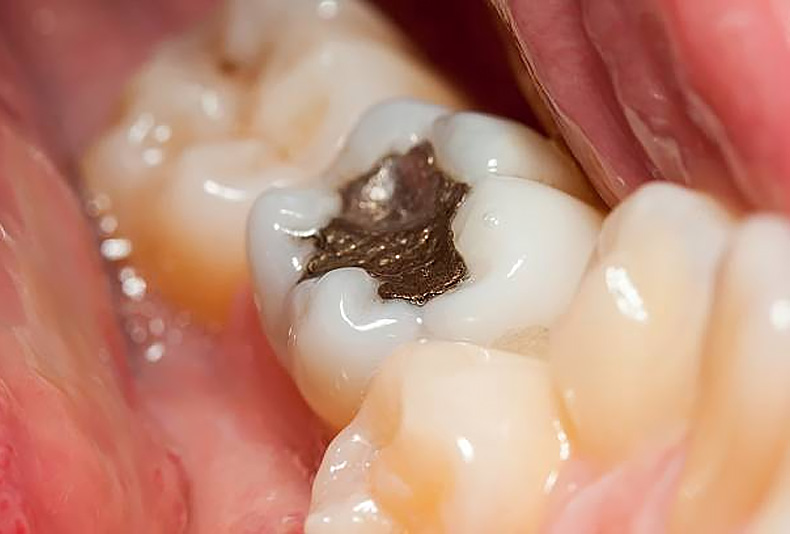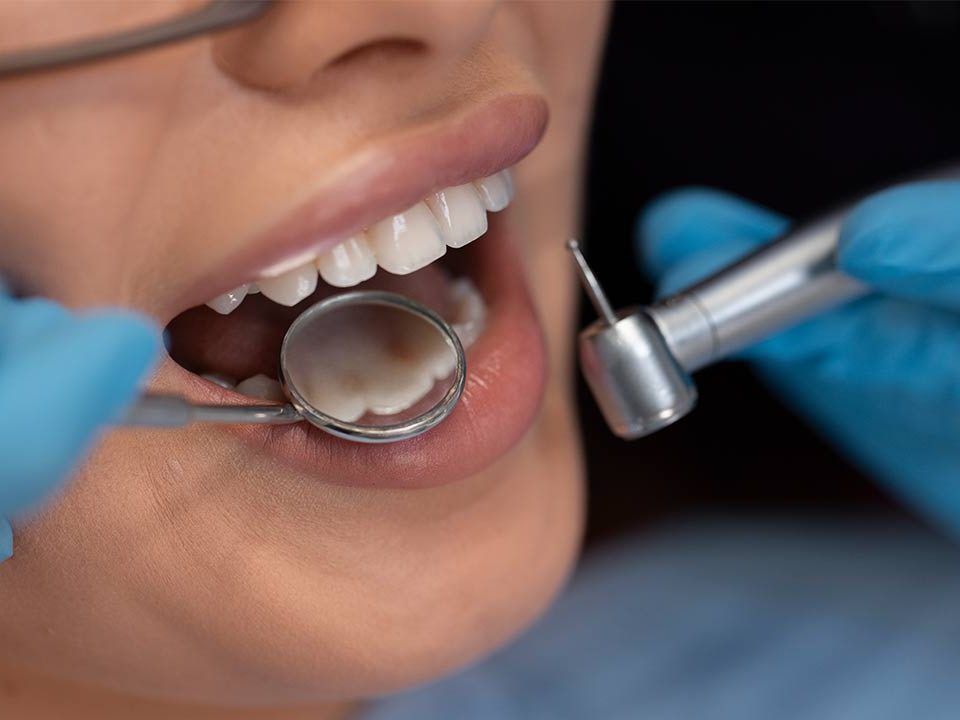
What are the Most Common Oral Lesions?
May 17, 2023
How Many Cavity Fillings are Normal at Your Age?
May 24, 2023Do you frequently get cold sores? These little blisters around the lips that are filled with fluid can be unpleasant, unsettling, and unsightly. Unfortunately, the herpes simplex virus, which causes cold sores, can reoccur quite frequently, especially if your immune system is compromised. Cold sores and laser treatment come together as a successful and cutting-edge technology that can stop cold sores from coming again. This blog will discuss preventing cold sores using lasers, the process, cost, and other information.
What are Cold Sores?
Cold sores, often called fever blisters, are oral lesions brought on by the herpes simplex virus. They appear as painful, fluid-filled blisters on the lips and around the mouth.
What Causes Cold Sores?
- Stress
- Artificial UV light
- Cold/ flu/ fever
- Trauma
- Physical strain
- Sun exposure or sunburn
- Using steroids
- Cold weather
- Hormonal changes, including menstruation
What Are the Symptoms of Cold Sores?
The symptoms of cold sores include:
- Small, fluid-filled blisters on or around the lips
- Pain, itching, or burning feelings
- Swollen and tender lymph nodes
- Crusting and scabbing over the cold sores
Cold sores can be incredibly uncomfortable for some people. When stressed, unwell, or exposed to the sun, they are more likely to recur in the same place or in different places around the mouth.
Find Out More: Venous Lakes Lip Treatment in Ahwatukee, Phoenix
Stages of Cold Sore
- Tingling and itching. Many people experience a tingling, burning, or itchy feeling.
- Blistering. Usually, little blisters packed with fluid emerge.
- Oozing and crusting. The tiny blisters may combine, break, and leave shallow open sores that drip fluid before crusting over.
All phases of cold sores are dangerous, but fluid-filled blisters are thought to be the most contagious due to the fluid that drains from lesions containing the HSV virus.
How Are Cold Sores Treated?
Antiviral drugs like acyclovir and Valacyclovir can treat cold sores and minimize the severity and length of the symptoms. Cold sore symptoms can also be relieved using over-the-counter lotions and ointments. However, these treatments do not always prevent the recurrence of cold sores.
Preventing Cold Sores Using Lasers
Cold sore recurrence can be avoided with safe and efficient laser treatment. The laser eliminates the virus in the infected area while leaving the surrounding skin unharmed. There is no downtime necessary after the rapid, painless laser treatment.
A laser beam treats the afflicted area, heating the tissue, weakening the virus and consequently preventing it from producing a blister. Cold sores can be treated with a laser at any stage, and it will be pushed to dormant state.
How Can I Prepare for Laser Treatment for Preventing Cold Sores?
You should stay out of the sun for at least a week before getting laser treatment to prevent cold sores. Additionally, stay away from harsh skincare products that could irritate your skin. Before receiving therapy, it is advised that you discuss any medications or dietary supplements you are taking with your doctor.
Can Lasers Prevent Cold Sores Completely?
It’s crucial to remember that laser therapy is not a cure for cold sores, even though it might be useful in preventing them. Despite therapy, cold sores can still return. Therefore, it is important to take basic preventative steps like avoiding stress and getting enough sleep.
Benefits of Treating and Preventing Cold Sores Using Lasers
- No pain during treatment
- Without anesthetic, the procedure takes a short while.
- Rapid healing
- The quick relief
- May stop a sore from coming back
- May prevent the lesion from spreading
- Sores recur with less intensity and frequency at the same location
How Many Sessions Are Required for Preventing Cold Sores Using Lasers?
The breakout’s severity and recurrence frequency can affect the number of laser therapy sessions needed to prevent cold sores. In general, one to three sessions are advised to stop cold sores from returning.
Is Preventing Cold Sores Using Lasers Painful?
No, preventing cold sores using lasers is not uncomfortable. You won’t need anesthesia because laser therapy is rapid and painless. You can feel a tiny warming sensation during the procedure, but it won’t hurt.
Side Effects of Preventing Cold Sores Using Lasers
Cold sore prevention with laser therapy is a painless and secure process. The majority of the time, there are no negative side effects, but in a small number of cases, the treated area may experience slight redness, swelling, or sensitivity.
How Can I Prevent Cold Sores from Recurring?
While laser therapy helps stop cold sores from coming back, there are other steps you can take to decrease the chance of an outbreak, such as:
- Maintaining a robust immune system
- Avoiding stressors and sunlight as triggers
- Maintaining proper hygiene
- Using lip balm and sunscreen
What Kind of Laser Is Used for Cold Sores?
Low-level or cold lasers are used to cure cold sores. Without creating heat or harming the skin, this laser targets the problem area using low-intensity light. To speed up healing and lessen the severity of symptoms, the laser promotes the body’s natural healing response and reduces inflammation.
The Best Laser for Cold Sores
Pulsed dye and diode lasers are only a couple of the different laser types that can be utilized to treat cold sores. The patient and the severity of the cold sore may impact the laser treatment’s efficacy. It is best to speak with a dental doctor who can advise you on the best laser therapy for your particular circumstances. To ensure safety and the best outcomes, it’s also crucial to ensure the laser device is FDA-approved and used by a qualified practitioner.
Cold Sore Laser Treatment Cost
Depending on the facility, the kind of laser used, and the severity of the cold sore, the cost of cold sore laser therapy may change but it is roughly over $100. In general, cold sore laser therapy may cost more than conventional cold sore therapies like topical lotions or antiviral drugs.



